Celebrate Our Staff – April 2023
Join us as we celebrate our colleagues’ achievements across the University from the past few weeks.

Featured this month:
- Volcano researcher is out of this world
- Fellowship for Biology researcher
- Gold medal for Physics PhD student
- Recognition for Psychology academic
- Exhibition at major historical site takes a new look at French history
Volcano researcher is out of this world
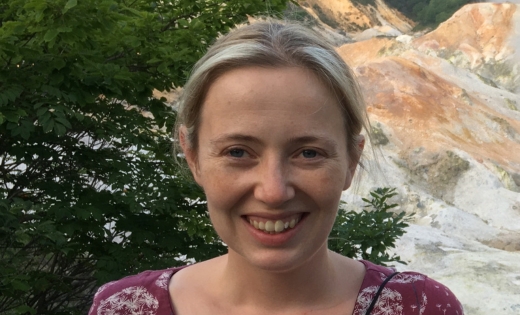
Dr Susanna Ebmeier has been recognised at the European Space Agency (ESA)-European Geosciences Union (EGU) excellence awards.
The awards celebrate the innovative use of Earth observation data.
Dr Ebmeier, from the School of Earth and Environment, won the individual award for her work using satellite images to further the scientific understanding of volcanic processes.
Satellite technology means researchers can take measurements that show how the Earth’s surface is moving in volcanic areas with a precision of a few millimetres.
That information means that Dr Ebmeier and her colleagues are able to see how molten rock is moving beneath the Earth’s surface, as well as learn about the growth and stability of volcanoes themselves.
Dr Ebmeier said: “I was honoured to accept nomination for the Excellence Award. I hope that this award contributes to the profile of volcano science as an important application of European satelllite datasets.
“I would like to thank my very supportive network of collaborators, former supervisors, colleagues and current students. I think that the best, as well as the most rewarding, research is collaborative.”
The prize winners, from across Europe, have been celebrated at the EGU’s General Assembly which took place in Vienna on 25 April.
Read more about the ESA-EGU awards.
Fellowship for Biology researcher
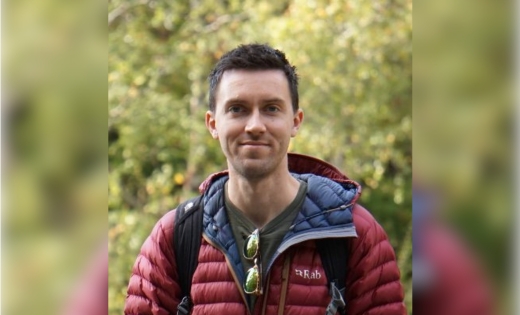
Dr Chris Bell has been awarded a Discovery Fellowship as part of his work in biological sciences.
Dr Bell, from the School of Biology, will take forward innovative projects as part of a three-year programme.
The highly sought-after fellowship, granted by the Biotechnology and Biological Sciences Research Council (BBSRC), is offered to individuals who are poised to become outstanding leaders in their field.
The BBSRC looks at research areas including animal health, food and nutrition, and bioscience.
The funding will allow Dr Bell to lead research into how plants allocate their resources to different soil organisms to promote beneficial interactions and aid crop production.
He said: “I’m incredibly excited to have been awarded this fellowship to further my research into host resource allocation. This is a highly competitive scheme which will enable me to make a real difference in this field. I’m looking forward to getting started.”
Dr Bell is one of 21 researchers to have receive the fellowship, with successful candidates demonstrating that they are undertaking ground-breaking science that has the potential to make real impact.
At Leeds, he has already worked with several genera (types) of nematodes – roundworms – to understand their interaction with the plant roots where they live.
His work has also concerned analysis of field trials to establish nematode-resistant plants in Uganda and identifying interaction between proteins in plants.
Read more about Dr Bell’s fellowship.
Gold medal for Physics PhD student
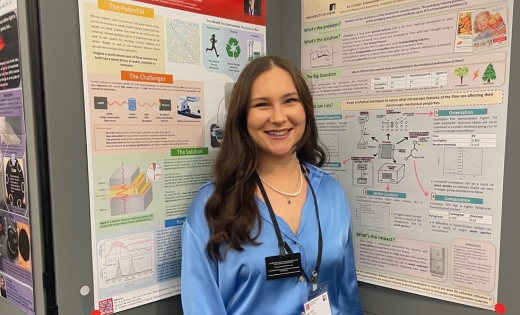
Alex Gresty has won a gold award medal in the Physics category at the STEM for Britain Awards 2023.
‘Celluosic films for the 21st Century’ explores food packaging from nature and the reckless overuse of plastics.
Alex, from the School of Physics and Astronomy, also celebrated a Silver medal for the Dyson sustainability award during British Science Week in March.
Students from the Faculty of Engineering and Physical Sciences won other coveted awards at the event which took place at the Houses of Parliament.
STEM for Britain allows early career researchers the chance to present their work and discuss ground-breaking and frontier research and research and development (R&D) to members of both Houses of Parliament at Westminster.
Sharing her thoughts, Alex said: “I am beyond honoured to have been recognised for my work amongst the outstanding research that was presented at the STEM for Britain awards 2023.
“Working with and understanding the properties of sustainable packaging is a vital step to the phasing out of synthetic plastics in the drive towards a more sustainable society, something I have always been extremely passionate about.”
This is the second year running that School of Physics and Astronomy PhD students have won a gold award – last year Adele Parry also received the top prize.
STEM for Britain is a scientific poster competition and exhibition which gives an opportunity to members of both Houses of Parliament an insight into the outstanding research being undertaken in UK universities.
Recognition for Psychology academic
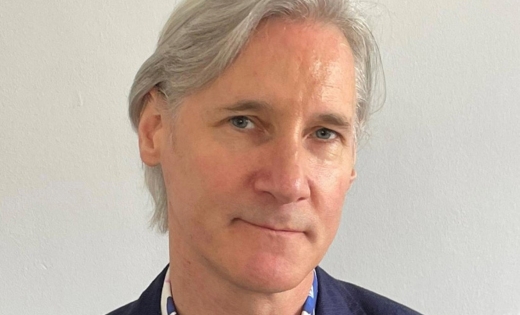
Professor Daryl O’Connor has been elected as a Fellow of the American Psychosomatic Society.
Professor O’Connor, from the School of Psychology, has been recognised for his research investigating the pathways between stress and ill health, as well as his sustained excellence in scholarship and professional contributions.
At the Society’s Annual Scientific Meeting in March, Professor O’Connor gave a presentation on the effect of stress and childhood trauma on biological, psychological and behavioural processes – the recent focus of his work.
Stress is now the most common cause of sick leave in the UK and, according to the Health and Safety Executive (HSE), is frequently shown to be an important factor in accounting for the more than 17 million working days lost per year. It has been shown to contribute to obesity, cardiovascular disease and cancer risk as well to multiple mental health conditions and increased prevalence of suicide.
Professor O’Connor said: “Stress is a very serious global health issue – it can influence your biology, psychology and behaviour in ways which can damage your physical and mental health. In addition, the importance of early life adversity and childhood trauma for future health and wellbeing cannot be underestimated.
“It was great to be able to present my latest work to the American Psychosomatic Society – one of the leading scientific organisations in my field – and it was an honour to be elected one of their Fellows.”
In addition to his own research, Professor O’Connor has for many years also been a leading and vocal advocate for ‘open science.’
As part of this, Professor O’Connor has taken on the role of the University’s Institutional Lead for Open and Reproducible Research as part of the UK Reproducibility Network (UKRN), which Leeds joined in January this year.
The role sees him work with Leeds colleagues and collaborators from universities across the UK as part of an effort to improve research quality, transparency and reproducibility.
Professor O’Connor is a regular guest and contributor to All in the Mind on BBC Radio 4. He also played a key role in supporting the British Psychological Society’s response to the COVID-19 pandemic and was elected an Honorary Life Member of the Society in 2021.
Read more about Professor O’Connor’s work on his STARlab website.
Exhibition at major historical site takes a new look at French history
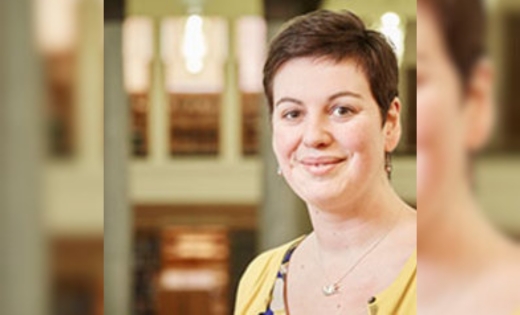
Professor Nina Wardleworth is co-curating an exhibition at France’s leading Second World War commemorative site on the role played by colonial resisters and soldiers during the conflict.
Professor Wardleworth, from the School of Languages, Cultures and Societies, is organising the exhibition as part of her research project which is examining the Second World War in
France through the lens of these fighters from across the French Empire.
“This is the first time a museum has examined the Second World War from the perspective of these resisters. It tells the stories of individuals who have been previously forgotten due to prevalent attitudes to colonised populations.
“The most exciting part is that this exhibition will centre individual stories, helping the visitors to connect more directly with the people who took part.”
Rarely seen archival photos and letters to and from the resisters and their families will help tell the stories of key resisters who form a major part of the display.
One of those featured is Madavin Mouchilotte, who was born in Mahé, a French colony in India. A student at the Sorbonne university in Paris, he became the leader of communist students and involved in numerous forms of resistance activity.
In March 1942, he was arrested alongside his fiancée Gisele Mollet and friend Lai Tse Cheung for his work in the resistance and was executed sixth months later at the Mont-Valérien military fortress in Paris – one of more than 1,000 men who suffered the same fate at the site.
Now a museum, the exhibition will be running at Mont-Valérien between June 2023 and Spring 2024. A historic fortress, the complex was designated a national memorial in 1945, in memory of those who died for France during the conflict.
An English language-version of the exhibition will then be displayed at the French Institute in London before being brought to the University of Leeds between November 2023 and January 2024.
Get in touch!
We know there are lots of great things happening to support the work of the University – and we want to hear about them!
Please follow the staff Twitter account to see the latest updates and copy in our @UniLeedsStaff handle when posting success stories, so we can share them with colleagues.
You can also contact Internal Communications and Engagement directly at internalcomms@leeds.ac.uk if you or one of your colleagues would like to appear in this monthly feature. This is open to all staff – professional and academic.
Posted in: University news